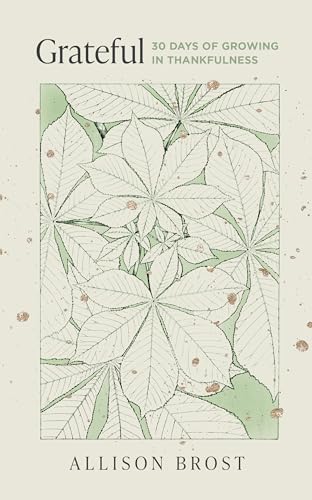Pulling up Weeds
“So we see that they were unable to enter because of unbelief.”
I added a new, recurring task in my phone’s calendar: weed my garden. The first year we’d started out the weeds weren’t so bad. The plot was small and easily managed with a few pulled up handfuls during a routine visit to water or gather harvests. But as we’d grown and expanded our space, these unwanted and unexpected visitors had snuck their way in, sucking up nutrients out of the soil and making for a rather unsightly mess. We hadn’t planted them or desired for them, yet here they were.
Doesn’t that pattern sound familiar? We start out expectant for growth and excited to experience all the good things God has planned. We have hopes and dreams for how fruitful our lives should now be looking—only to find any growth seemingly choked out by the pressures of the world around us, and our thankfulness waning.
Jesus describes four types of soil in Matthew 13: the hard path, the rocky soil, the thorny ground, and the good soil. And while the first two soils are described as being unfit for growth, the interesting thing about the third is that it isn’t the soil itself that’s the problem—it’s the things that sprout up within it.
Jesus explains this, saying, “As for what was sown among thorns, this is the one who hears the word, but the cares of the world and the deceitfulness of riches choke the word, and it proves unfruitful” (Matthew 13:22).
Gulp. I can’t be the only one who endeavors to live a thankful life, yet often ends up unexpectedly burdened by the cares of the world or tempted by the ease and allure of the good life. I don’t think any of us intentionally stunt good growth in our own lives, yet how many of us fail to recognize that the real root of weeds is unbelief? Whether we’re fighting the temptation to take the path of an easier life or feeling burdened by our troubles, we unknowingly cultivate these thorns whenever we fail to live in thankful trust of God.
Just take the case of the Israelites. Growing up in Sunday school, I remember often hearing stories about their grumbling journey through the wilderness. And frankly, I couldn’t help but feel a bit frustrated with these people. Didn’t they remember what God had just done for them? How could they already have forgotten how he’d parted seas and destroyed armies and miraculously rained down food from heaven for them?
Somehow all that desert sand had disintegrated their faith into streams of complaining. In fact, Scripture tells us that the people actually wished they were dead! In Exodus 16:3, they declare to Moses, “Would that we had died by the hand of the Lord in the land of Egypt, when we sat by the meat pots and ate bread to the full.”
Suddenly the Israelites are looking back on Egypt not as the root of their bondage and the source of all their suffering but as the place where they’d “sat by the meat pots and ate bread to the full.” What is going on?
Take a look now at what Hebrews 3:15-19 has to say about the Israelites: “Who were they who heard and rebelled? Were they not all those Moses led out of Egypt? And with whom was he angry for forty years? Was it not with those who sinned, whose bodies perished in the wilderness? And to whom did God swear that they would never enter his rest if not to those who disobeyed? So we see that they were not able to enter, because of their unbelief.”
The Israelites were caught up in all the cares of this life. They were deceived into looking back on their past with some seriously rose-colored glasses—and traded out a rich relationship of trust with their Savior for the tempting allure of a life of ease. Their grumbling simply revealed what was buried down in their hearts: unbelief.
How can we look out for these weeds coming up in our own lives? We pay attention to those areas where we find it easier to grumble than to give thanks. What are the untruths that we are believing about God’s character? In what areas of your life is it a struggle to trust God?
Living a thankful life is far easier when the soil of your soul is cultivated by trust in your Father. As he makes you aware of any weeds in your own life, ask for forgiveness. Confess any areas of unbelief and let your heart and mind be renewed through the truth of God’s word. There’s no better way to rid our lives of the weeds of this world than through thanksgiving.
Taken from Grateful: 30 Days of Growing in Thankfulness by Allison Brost. Copyright (c) 2025 by Allison Brost. Used by permission of The Good Book Company. www.thegoodbook.com

